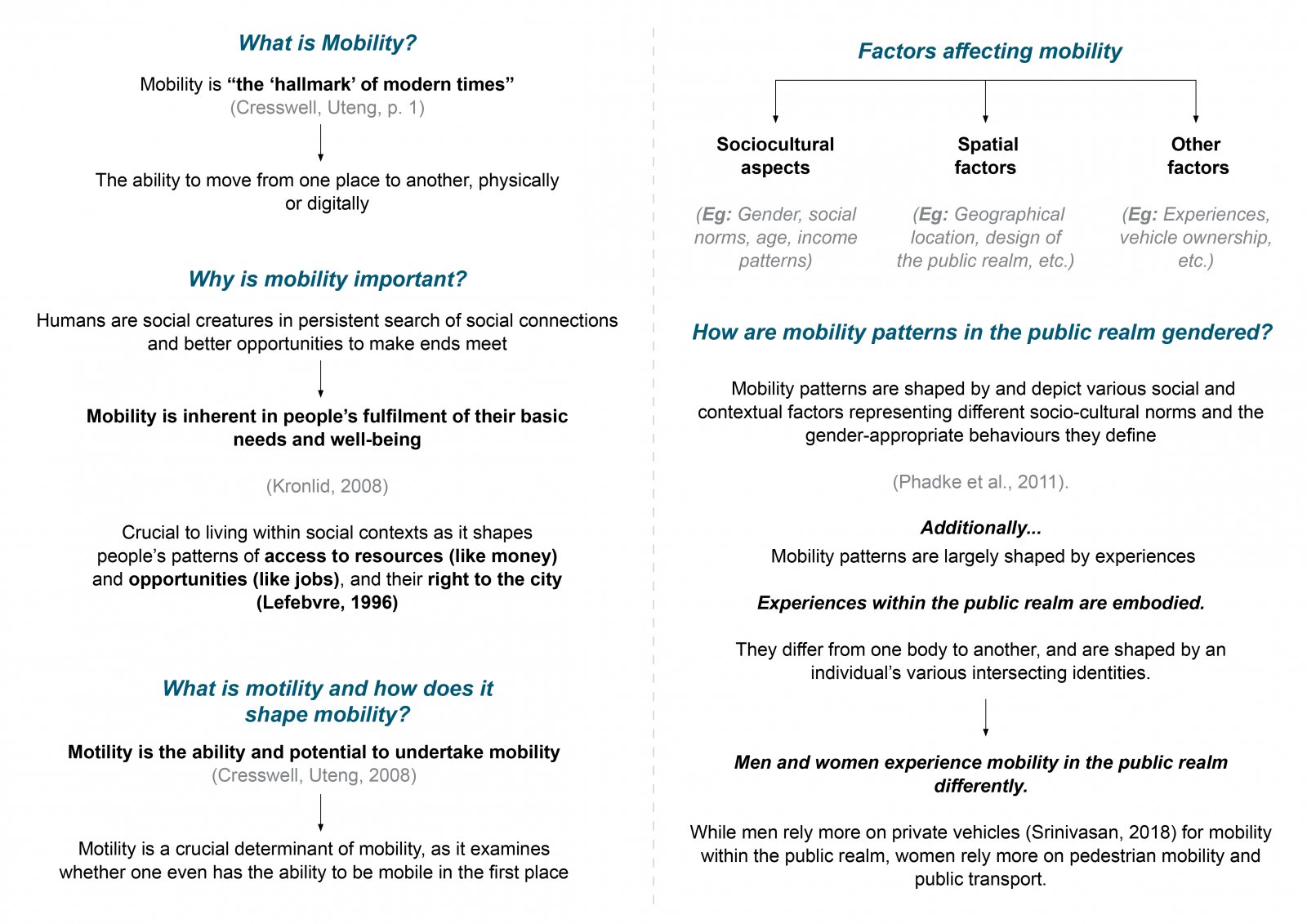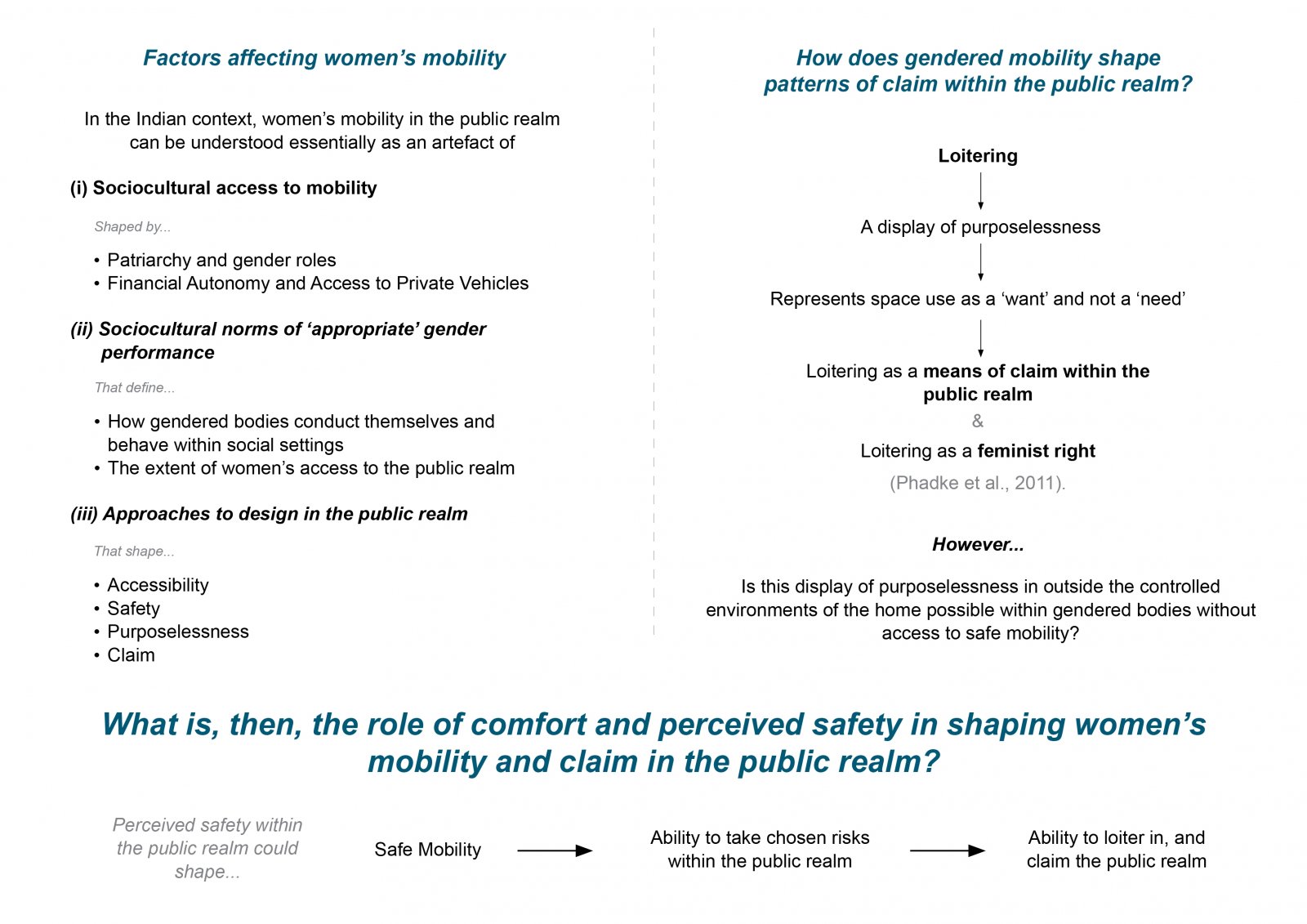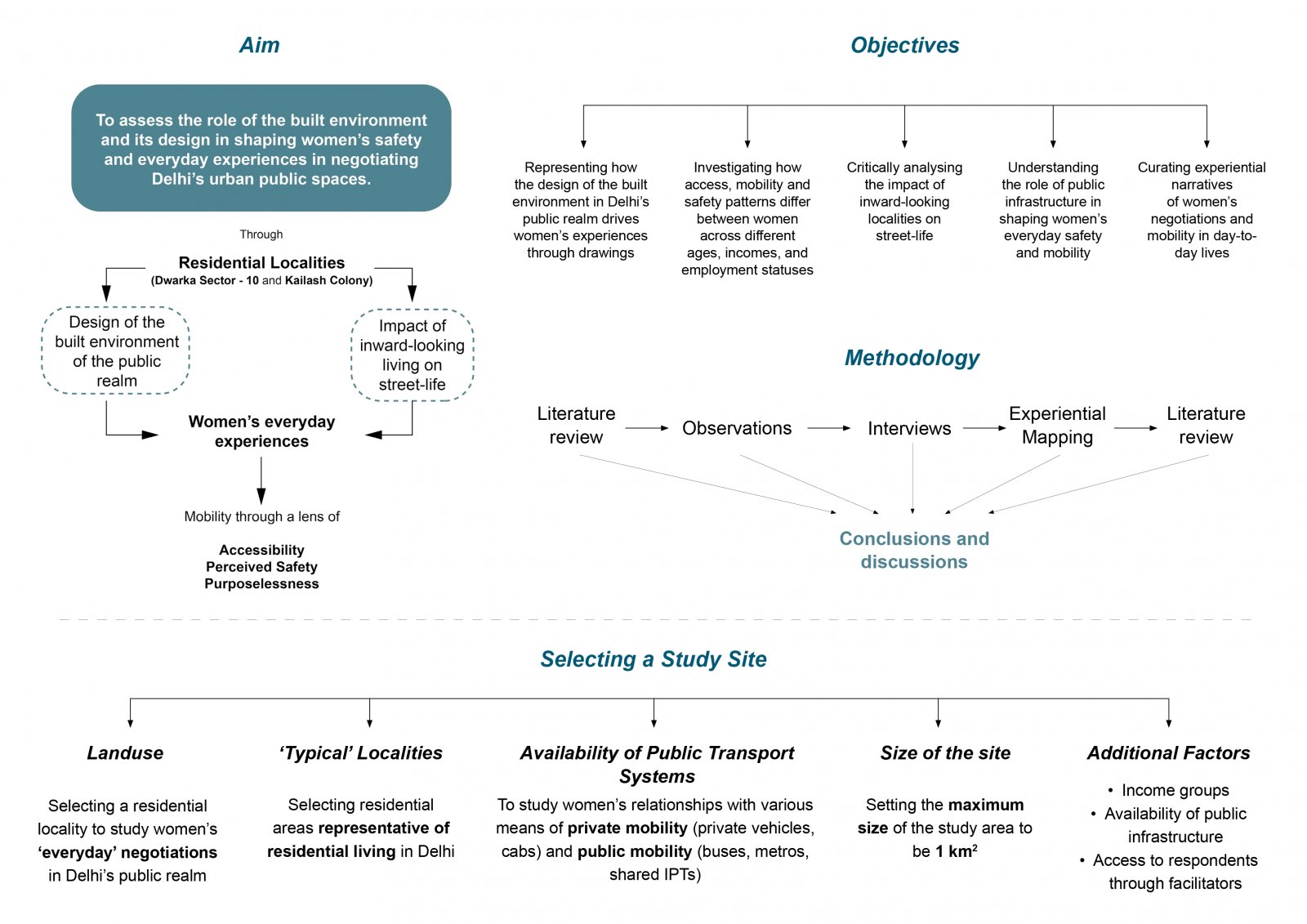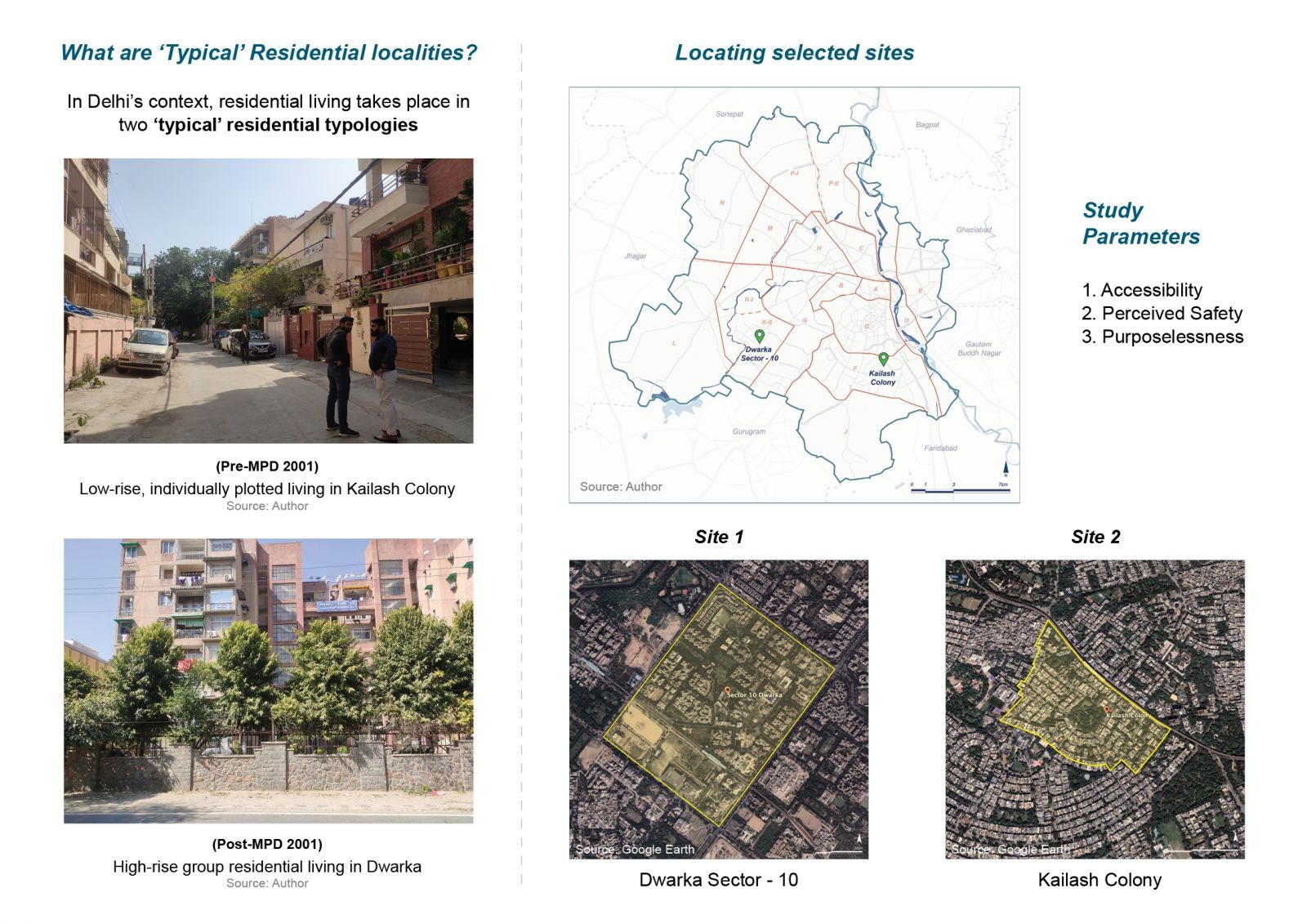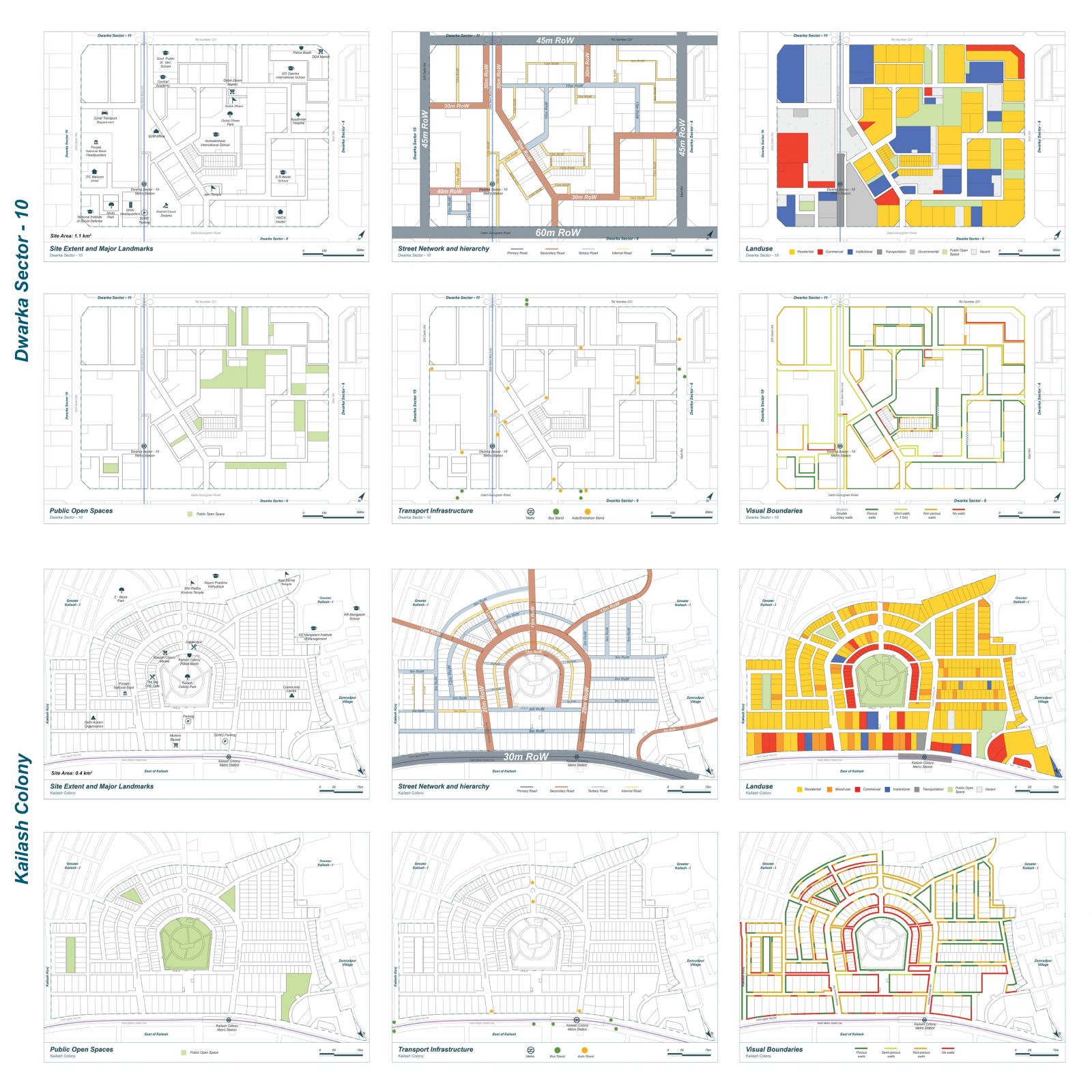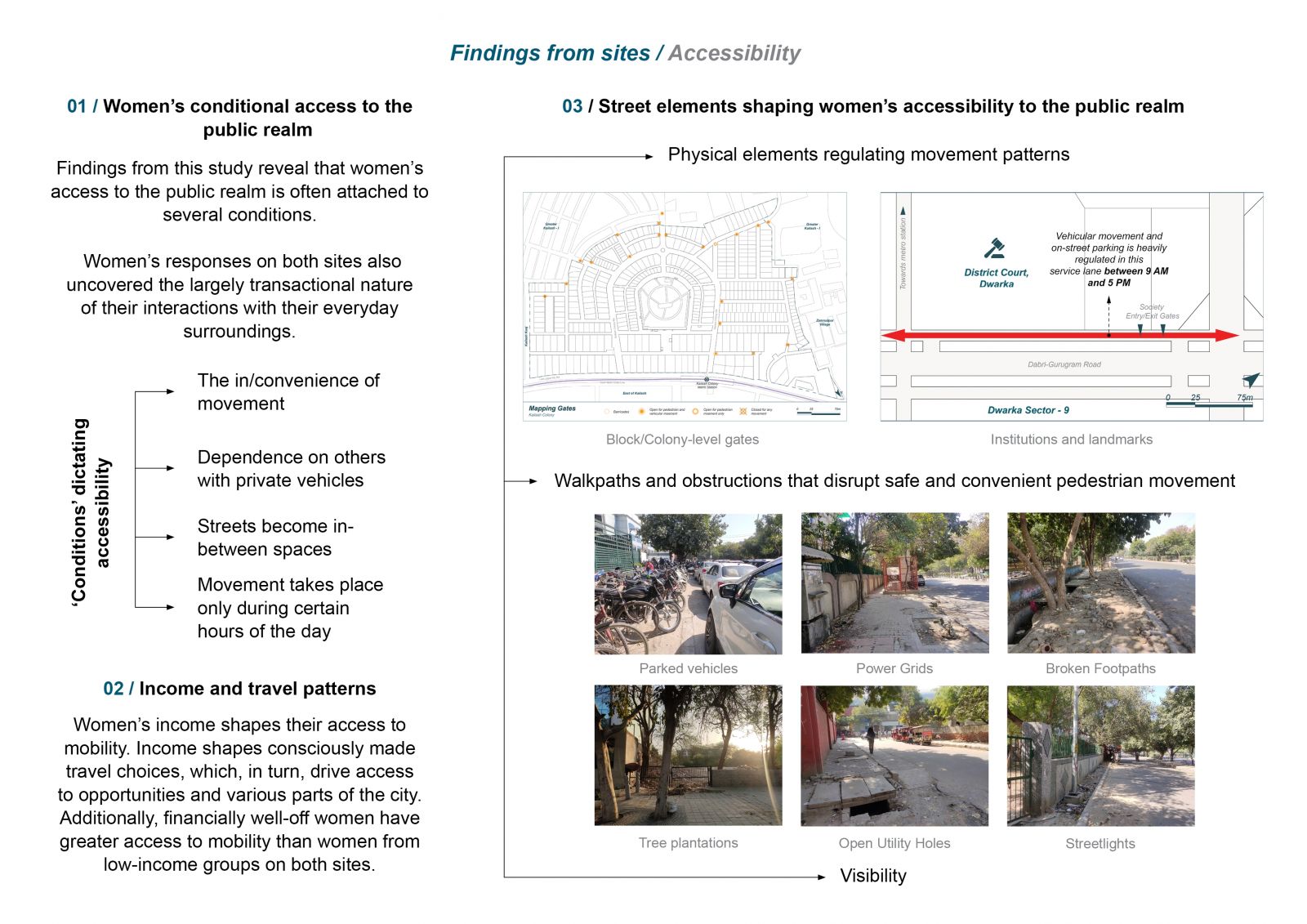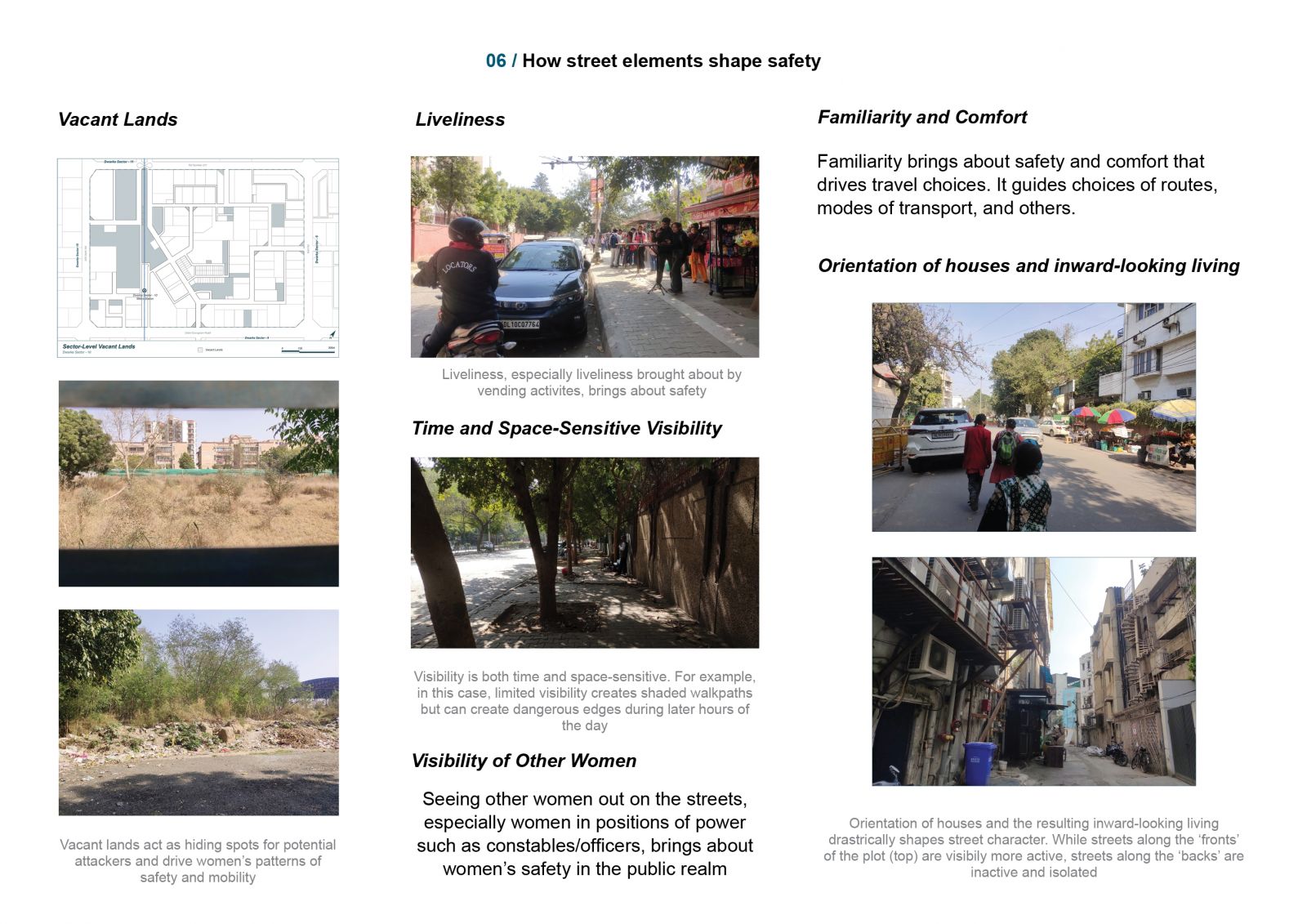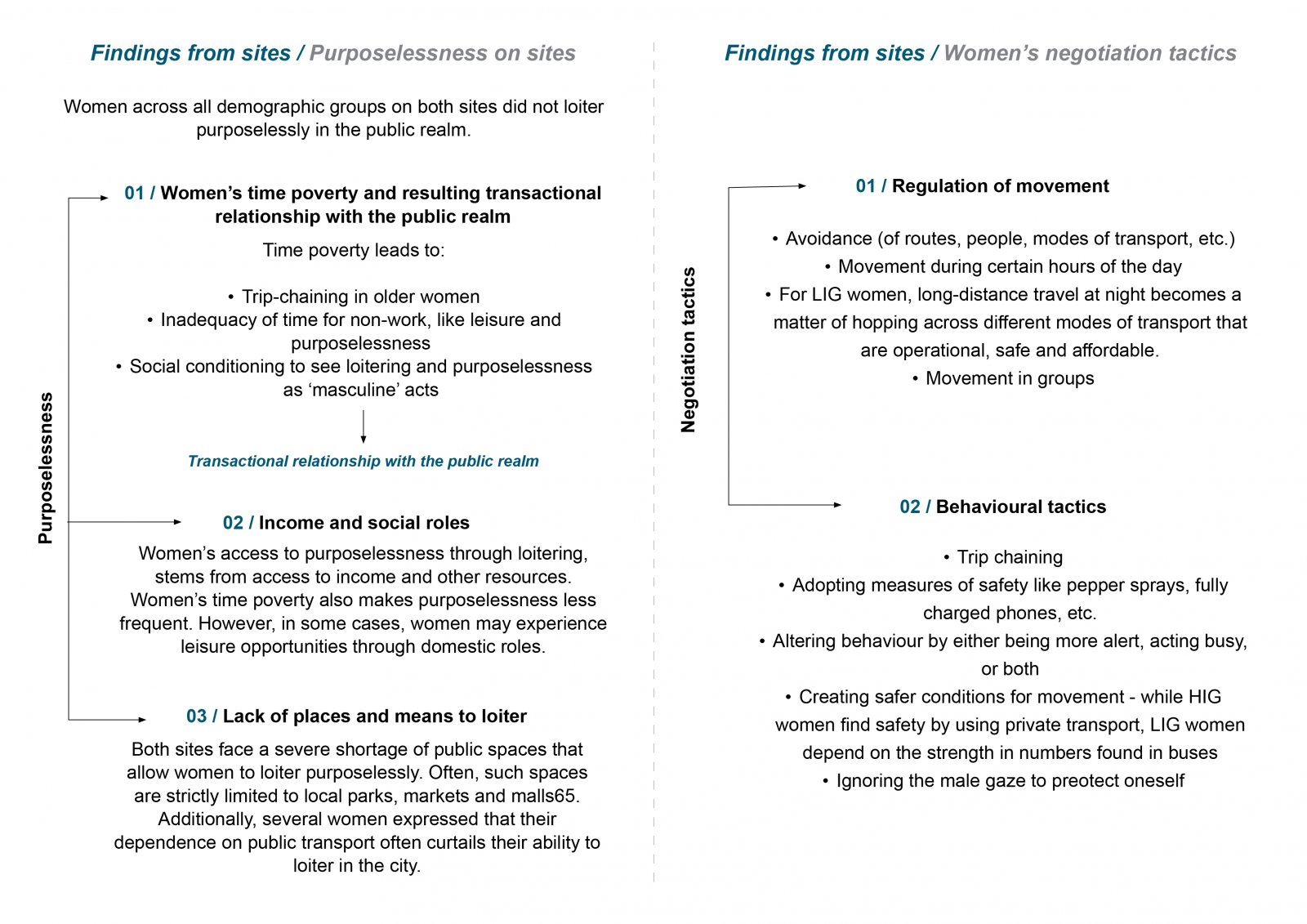Your browser is out-of-date!
For a richer surfing experience on our website, please update your browser. Update my browser now!
For a richer surfing experience on our website, please update your browser. Update my browser now!
This project assesses the role of the built environment and its design in shaping women’s safety and everyday experiences in negotiating Delhi’s urban public spaces. Using a mixed-methods approach, it uses qualitative data collection tools like literature reviews, interviews, mapping and observation to gather and decode experiential data on women’s mobility in everyday spaces within Delhi’s residential neighbourhoods. Using data on women’s lived experiences, this research curates experiential and spatial narratives on women’s safety and daily mobility in Delhi. This research studies women’s safety, access and mobility patterns in residential neighbourhoods to understand their relationships with their immediate, everyday contexts.
View Additional Work